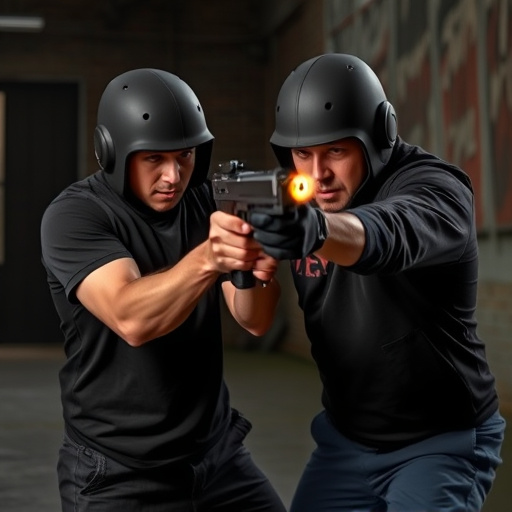Non-lethal self-defense stun weapons (ECDs), like Tasers, offer Americans a legal and safe option for personal protection. However, their use is governed by state laws that vary widely in requirements, including age restrictions, background checks, training mandates, power limits, storage rules, and carry permissions. Understanding these regulations is crucial before purchasing and deploying these devices for self-defense.
In today’s world, civilians are increasingly exploring options for personal safety, turning to non-lethal self-defense stun weapons like tasers. Understanding state laws regulating civilian taser ownership is crucial before making a purchase. This article delves into the legal framework surrounding these devices, covering state laws, requirements for acquisition, and considerations for use, ensuring readers are informed about their rights and responsibilities.
- Understanding Non-Lethal Self-Defense Stun Weapons
- State Laws Regulating Civilian Taser Ownership
- Requirements and Considerations for Purchase and Use
Understanding Non-Lethal Self-Defense Stun Weapons

Non-lethal self-defense stun weapons, also known as electronic control devices (ECDs), are designed to incapacitate an assailant temporarily without causing permanent harm or death. These tools have gained popularity among civilians seeking effective personal defense options. ECDs typically emit a strong electric pulse that disrupts muscle control, leading to a loss of balance and consciousness for a brief period. Unlike firearms, stun guns, and pepper spray, non-lethal self-defense weapons do not rely on ammunition and have lower risks of accidental discharge or collateral damage.
State laws regarding civilian ownership of these devices vary widely. Some states allow their possession with minimal restrictions, while others require specific permits or licenses. Understanding the legal framework around non-lethal self-defense stun weapons is crucial for ensuring compliance with local regulations. It’s important to note that proper training and familiarity with the device’s operation are essential for safe and effective use in real-life situations.
State Laws Regulating Civilian Taser Ownership

In the United States, state laws play a pivotal role in regulating the ownership and use of non-lethal self-defense stun weapons, commonly known as Tasers. These legal frameworks are designed to balance individual rights with public safety concerns. Many states have enacted specific regulations regarding civilian Taser ownership, detailing who can possess, carry, and use these devices.
The requirements vary across the country, but generally, individuals seeking to own a Taser must be of legal age (usually 18 or older), undergo a background check, and potentially complete a training course. Some states differentiate between personal protection and law enforcement use, with distinct rules for each. For instance, certain states allow civilians to carry stun guns for self-defense but mandate that they be used only in response to an imminent threat, adhering to strict self-defense principles. Other regulations may include restrictions on where Tasers can be carried (e.g., schools, courts) or requirements for registration and storage. Understanding these state laws is crucial for anyone considering the acquisition of a non-lethal self-defense stun weapon.
Requirements and Considerations for Purchase and Use

In many states, civilians can legally purchase and carry non-lethal self-defense stun weapons, commonly known as Tasers. However, there are stringent requirements and considerations that prospective buyers must understand before making a purchase. Each state has its own set of regulations governing the acquisition and use of these devices, focusing on public safety and responsible ownership.
For instance, many states mandate minimum age requirements, often 18 or 21 years old, to purchase Tasers. Additionally, background checks are typically conducted to ensure the buyer does not have a criminal history or any disqualifying factors. Some states also enforce restrictions on the type of Taser allowed for civilian use, specifying power levels and safety features that must be adhered to. Responsible ownership includes attending training courses to learn proper usage and handling techniques, ensuring safe storage, and understanding local laws regarding open or concealed carry.
Civilian taser ownership, while offering a means of personal protection, is subject to stringent state laws and regulations. Understanding these requirements, including specific rules for purchase, possession, and use, is crucial before considering the acquisition of non-lethal self-defense stun weapons. By familiarizing yourself with your state’s guidelines, you can ensure compliance and make informed decisions regarding your safety and security.
